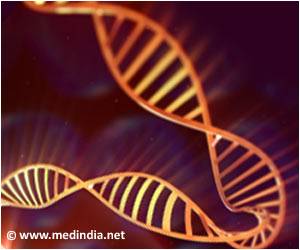Discover the power of synthetic biomarkers and CRISPR-Cas in precision diagnostics, revolutionizing disease detection and personalized treatments.
- Synthetic biomarkers and chemically stabilized nucleic acids overcome limitations of DNA barcodes, enhancing their utility in multiplex diagnostics
- CRISPR-Cas technology enables the sensitive and precise detection of synthetic biomarkers, revolutionizing disease monitoring
- Microfluidic platforms and paper-based diagnostics expand access to rapid, comprehensive, and decentralized healthcare
CRISPR-Cas-amplified urinary biomarkers for multiplexed and portable cancer diagnostics
Go to source).
Limitations of DNA Barcodes
DNA barcodes have long been employed as a multiplexing tool in diagnostic assays due to their unique sequences. However, their vulnerability to nucleases in the complex biological milieu has hindered their effectiveness for in vivo applications. To overcome this limitation, researchers have harnessed chemically stabilized nucleic acids, which possess enhanced resistance to degradation, as a basis for synthetic biomarkers.Multiplexing Synthetic Biomarkers with Chemically Stabilized Nucleic Acids
By exploiting chemically stabilized nucleic acids, synthetic biomarkers can be multiplexed to simultaneously detect multiple disease-related targets within a biological sample. This approach offers a significant advantage over conventional diagnostic techniques, which often require separate assays for each target of interest. With synthetic biomarkers, a single test can provide comprehensive and simultaneous information about various disease states, saving time and resources while enhancing diagnostic accuracy.CRISPR-Cas-Mediated Barcode Detection
In recent years, the revolutionary gene-editing tool CRISPR-Cas has gained widespread recognition for its applications in genetic engineering and biomedicine. Building upon this technology, researchers have developed a strategy to "read out" the molecular reporters generated by synthetic biomarkers using CRISPR nucleases. This approach leverages the specificity of CRISPR-Cas systems to selectively recognize and bind to the released nucleic acid barcodes, enabling their detection with high sensitivity and precision.Non-Invasive Detection and Disease Differentiation
One of the key advantages of synthetic biomarkers and CRISPR-based detection is their potential for non-invasive diagnostics. In a series of experiments using transplanted and autochthonous murine cancer models, DNA-encoded nanosensors were successfully employed to detect and differentiate disease states. This breakthrough offers a promising pathway for developing non-invasive diagnostic tools that can revolutionize disease detection and monitoring in humans.Conversion to Point-of-Care Paper Diagnostics
To further expand the accessibility and practicality of synthetic biomarkers, researchers have explored the use of CRISPR-Cas amplification to convert the readout into a point-of-care paper diagnostic tool. This approach enables rapid and cost-effective detection, making it particularly valuable in resource-limited settings. The simplicity and affordability of paper-based diagnostics open up new possibilities for decentralized healthcare and early intervention in remote or underserved regions.Densely Multiplexed Readout with Microfluidic Platforms
To evaluate complex human diseases rapidly and accurately, it is essential to have a diagnostic platform capable of analyzing multiple biomarkers simultaneously. Researchers have developed a microfluidic platform that utilizes CRISPR-mediated DNA barcode readout in a densely multiplexed manner. This technology holds immense potential for comprehensive diagnostics, enabling clinicians to obtain a detailed molecular profile of a patient's condition and make informed therapeutic decisions.The integration of chemically stabilized nucleic acids and CRISPR-Cas technology has revolutionized precision diagnostics through the development of synthetic biomarkers. By exploiting the unique features of these technologies, researchers have overcome the limitations of DNA barcodes and established a powerful tool for non-invasive disease detection, differentiation, and monitoring. The utilization of CRISPR-Cas amplification and microfluidic platforms further enhances the capabilities of synthetic biomarkers, enabling rapid and comprehensive analysis of complex diseases. As these technologies continue to evolve, they hold great promise for transforming healthcare by enabling early intervention, improving patient outcomes, and guiding personalized therapeutic approaches.
Reference:
- CRISPR-Cas-amplified urinary biomarkers for multiplexed and portable cancer diagnostics - (https://pubmed.ncbi.nlm.nih.gov/37095220/)
















